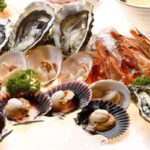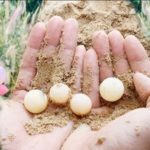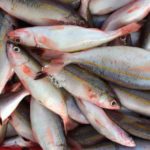Nutritional Value of Snails
Snails have many important nutritional components, low fat, rich in protein and vitamins along with some essential minerals for the body such as magnesium, selenium, vitamin E, and phosphorus. Therefore, the nutritional components in snails will have the following effects on the human body:
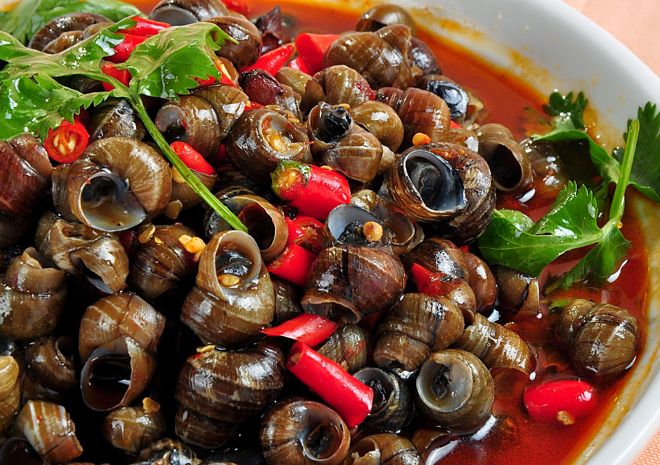
Magnesium: Magnesium helps support energy metabolism, make bones and teeth strong, and magnesium also participates in regulating nutrients such as zinc, calcium, potassium, and vitamin D. In 85g of snails, there are about 212mg of magnesium, and that amount of magnesium provides 53% of the recommended daily magnesium intake for adult men and 68% of the recommended daily magnesium intake for women.
Selenium: Selenium is a part of the selenoprotein enzyme, which helps support the endocrine and immune systems in the body. According to recommendations, women and adult men need about 55 mcg of selenium per day. In 85g of snails, there are 23.3 mcg of selenium, providing 42% of the daily necessary requirement. In addition, selenium has antioxidant properties, reduces the risk of cancer, cardiovascular diseases, arthritis, and recurrent infections.
Vitamin E: Snails contain vitamin E, which plays an important role in red blood cell synthesis, vitamin K metabolism, and protects cells from the harmful effects of free radicals. Vitamin E deficiency can cause difficulty in muscle control, abnormal eye movement, or problems with the liver, kidneys, and other organs. Therefore, providing adequate vitamin E will reduce the risk of macular degeneration due to aging, diabetes, cancer, neurological disorders, and cardiovascular diseases.
Phosphorus: Snails contain phosphorus, which is a substance that maintains bone density, regulates nutrients, supports energy metabolism, and helps in the production of DNA and RNA.
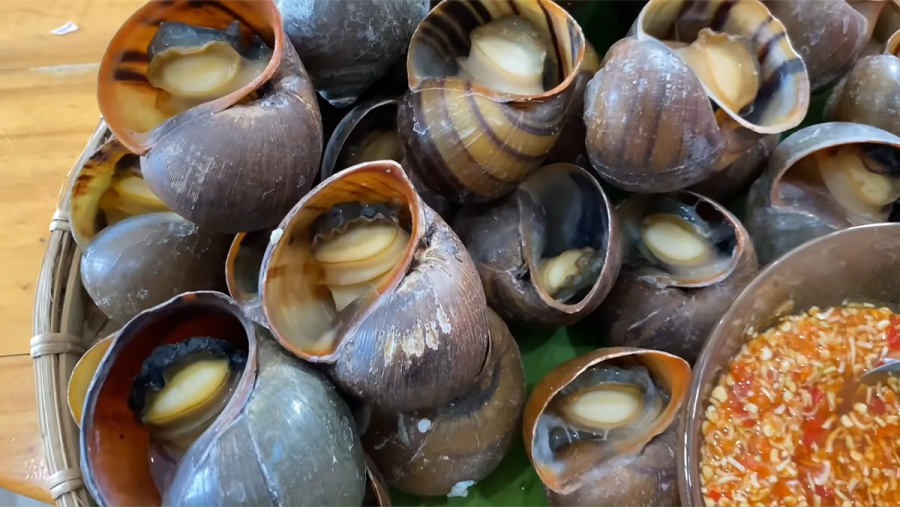
Who Should Not Eat Snails
People with gout, arthritis
Lao Dong newspaper cited Webmd as stating that snails are a source of high protein and calcium. Therefore, for those with gout, it is not advisable to include snails in their daily diet.
A high protein diet can produce uric acid, causing severe joint pain. When this condition persists, it can lead to the accumulation and deposition of urate crystals in the joints, causing severe pain for the patient.
Allergic Individuals
For those who are prone to allergies, if they want to eat crabs or snails, it is advisable to consult a doctor before consuming these types of food or to use a small amount to observe the body’s reactions. If symptoms such as hives, itching, nausea, etc., appear shortly after consuming, it is advisable to stop eating snails and seek medical treatment.
People with kidney disease, high blood pressure
Snails contain a high amount of sodium, and high sodium levels can worsen conditions such as diabetes, kidney disease, and high blood pressure. Therefore, for those with these conditions, it is advisable to limit the consumption of crabs and snails.

Individuals with cough or asthma
According to research by scientists from the University of Tokyo in Japan, people with cough or asthma, seafood such as snails can worsen the condition. Therefore, to avoid exacerbating the condition, it is best to avoid eating seafood to protect the body.
Precautions when eating snails
When eating snails, to achieve significant results and prevent risks, it is important to note the following:
Clean the snails before cooking: Snails are delicious and nutritious, but they contain many parasites that can cause diseases in humans. If parasites enter organs such as lungs, liver, intestines, liver, brain, or kidneys, they can seriously affect human health by causing cancer, organ failure, etc. Therefore, to clean the snails quickly but still ensure hygiene and safety, they can be soaked in rice washing water, vinegar water, or saltwater with lemon to remove any dirt and debris from the snails.
Do not soak the snails for too long or use them immediately: Snails can survive for a long time under suitable temperature and humidity conditions, so many people often do not use them immediately or have snails that have been left for a long time and may include dead ones. Soaking snails for too long can cause them to deteriorate or die, increasing the risk of typhoid, diarrhea, and food poisoning.
Cook snails thoroughly: When cooking snails, it is necessary to cook them properly and thoroughly, and avoid undercooking them. Undercooked snails can be dangerous to the health of the consumer because they contain many harmful parasites, resulting in an increased risk of digestive problems, peripheral edema, cancer, or other serious illnesses.
Avoid consuming snails with foods containing vitamin C: When eating seafood such as snails and shrimp, it is not advisable to consume them together with fruits or flowers that contain a lot of vitamin C. The reason is that the combination of vitamin C with nutrients in seafood can produce a toxic compound similar to thallium. This can cause abdominal pain, bloating, indigestion, and even more dangerous, food poisoning, which is harmful to health, especially the digestive system.
How to Choose Fresh Seafood: Important Cabinet Tips
In recent years, concerns have been raised over the practice of injecting urea and chemicals into seafood, making it difficult to find safe and fresh options. To help, DienmayXANH.com offers some tips on how to select the best seafood available. Seafood is a rich, delicious, and nutritious source of food, and this advice will help ensure you make the most of it.

























